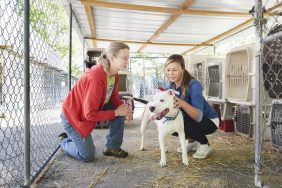There are many things that bring stress upon our lives. Most of that stress comes during the weekday when we’re working and juggling multiple responsibilities. Lucky for us, we can relieve that tension when we come home and get a good night’s sleep. But the same can’t be said for many dogs who live in shelters.
For these dogs, life in a shelter makes…




